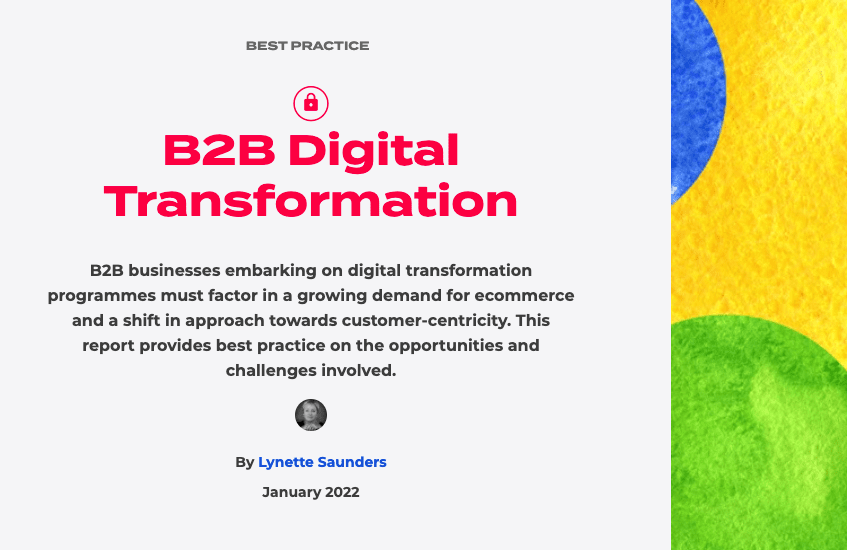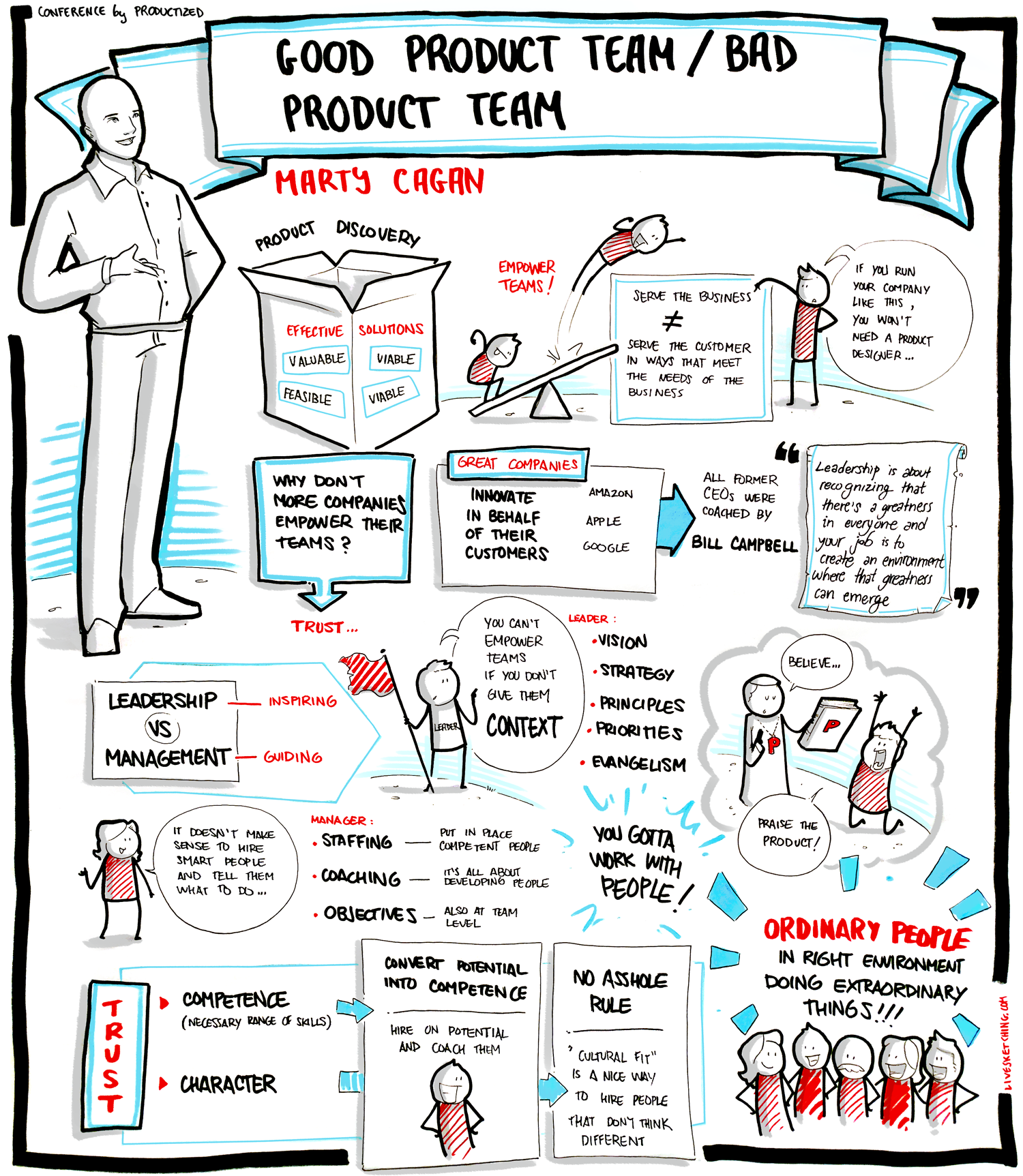As the push towards digital takes hold across the broader business landscape, B2B businesses must respond to an increased demand for ecommerce and a growing preference for self-service transactions, accelerated by the Covid-19 pandemic.
The new Econsultancy B2B Digital Transformation report explores the drivers of successful digital transformation and provides businesses with best-practice guidance on navigating strategic and operational challenges, with contributions from top B2B practitioners including myself.

The report covers:
- Digital drivers: What are the main factors powering the acceleration towards digital for B2B businesses, and how are these driven by customer expectations?
- Customer focus: What core strategic criteria should B2B businesses consider when moving towards a customer-centric approach, and how are B2B and B2C experiences converging?
- Omnichannel selling: What does a hybrid sales model look like, and how can the human touch be brought into the digital experience?
- Technology: What tools are available for improving the customer journey and supporting pre-sales queries and post-purchase aftercare?
- Content: Why is content critical for B2B businesses and how can data be used to personalise the customer experience?
- Strategic pillars: How do the seven strategic pillars of digital transformation lay the groundwork for the move to digital and how can they be applied in the B2B context?
Some things I said
When thinking about the customer, I emphasise that everything should start with the customer and their needs. Only once you understand them fully may you start talking about products and go-to-market strategies.
We spend a lot of time with the customer in their office, or on Teams calls; making them feel as much as possible a part of my product team. As a result, we are seen as more than a technology supplier: a trusted, strategic partner.
On ways of working, evidence shows that we must adopt Agile management practices
We ask our senior leadership team to behave like an agile
cross-functional team. If they can be an agile leadership team then the whole business will be agile.
as well as Modern Product Management structures and processes
Break down silos and commit to the team rather than each member’s separate function. Move from an environment where everyone is incentivised to fight for their functional area to truly cross-functional, collaborative teams who ask ‘what can I do?’ to help the entire business succeed as one team.
Customers demand Digital products and consumer-like experiences. Every workplace is becoming a Digital workplace, even those traditionally more resistant to change
In the education sector, administrators and teachers are realising that technology brings improvements to processes and ways of working. The amount of time saved and the quality of learning outcomes increase substantially.
Win-win!
When it comes to discussing challenges, I point out that organisations are designed, not organically evolved. Leaders must act as Product Designers, understanding the needs of the organisation’s users (colleagues, customers, investors, etc), designing the organisation that will best serve those needs, and iterating this design as new data comes in. Build – Measure – Learn.
Digital organisations are very different from traditional ones and inevitably we all must learn new skills and entirely new ways of working:
Unconscious Incompetence can be a big problem. Moving to a state of Conscious
Incompetence allows us to establish what we don’t know, and decide to design an
organisation that becomes competent in areas identified as weaknesses.

The most important decision any organisation can make is to choose to work differently:
Always make sure you are part of the team. Don’t be a function in a production line, be a member in an autonomous, empowered team. When you put people together that have different roles, skills and experience, give them a clear definition for success and the autonomy to be successful your business will achieve so much more!

It was a pleasure and a lot of fun talking to Lynette Saunders about my passion for Modern Product Management and the role it must play in every organisation’s Digital transformation. The B2B Digital Transformation Report is full of brilliant value and lots more quotes from many people I admire. I can’t wait to see what you all do with the learnings you take from it!

Leave a Reply